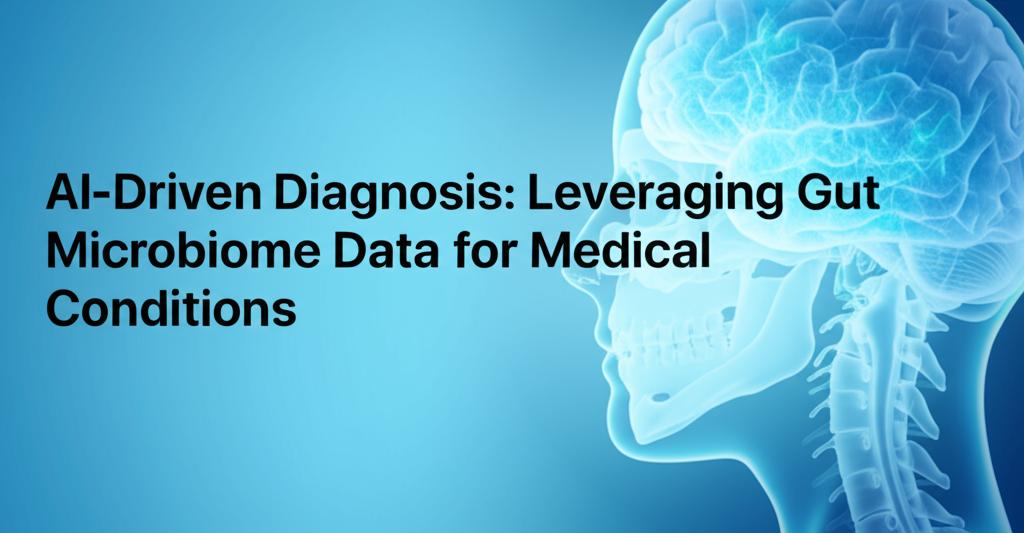The human gut, a bustling metropolis of trillions of microorganisms, plays a critical role in our overall health, influencing everything from digestion and immunity to even our mental well-being. Recent advancements in artificial intelligence (AI) are unlocking the complex secrets held within this microbial world, paving the way for revolutionary diagnostic tools for a wide array of medical conditions.
AI, particularly machine learning (ML) and deep learning (DL) algorithms, is proving indispensable in deciphering the vast and intricate datasets generated from microbiome analysis. These sophisticated computational tools can identify subtle patterns and microbial signatures associated with various diseases, offering insights that were previously unattainable.
Applications in Disease Diagnosis and Prediction:AI-driven analysis of gut microbiome data is showing immense promise in several key areas:
- Identifying Disease-Specific Microbial Signatures: AI excels at sifting through complex microbiome data to pinpoint specific patterns of bacteria, viruses, and fungi that are characteristic of certain diseases. For instance, distinct microbial profiles have been linked to conditions such as inflammatory bowel disease (IBD), colorectal cancer, cardiovascular diseases, metabolic disorders (like obesity and type 2 diabetes), and even neurological and mental health conditions like depression, anxiety, multiple sclerosis (MS), and autism spectrum disorder (ASD).
- Early Detection and Risk Assessment: By identifying these microbial imbalances, often referred to as dysbiosis, AI models can help in the early detection of diseases and assess an individual's risk of developing certain conditions. This proactive approach allows for earlier intervention and potentially more effective treatment strategies. For example, gut microbial-derived biomarkers are showing promise as non-invasive screening tools for colorectal cancer.
- Predictive Modeling for Disease Progression: AI models can analyze microbiome data alongside other patient information, such as lifestyle factors and genetics, to predict how a disease might progress in an individual. This can help clinicians tailor treatment plans more effectively.
- Personalized Treatment Recommendations: The ultimate goal is to use these AI-driven insights to develop personalized therapies. By understanding an individual's unique gut microbiome composition, treatments, including dietary adjustments, probiotics, and other targeted interventions, can be customized to restore a healthy microbial balance and alleviate symptoms.
AI employs various techniques to analyze microbiome data:
- Machine Learning Algorithms: Algorithms like random forests, support vector machines (SVMs), and k-means clustering are used to classify and cluster microbiome data. This helps researchers categorize different types of gut bacteria and identify patterns associated with various health and disease states.
- Deep Learning Models: More advanced techniques like Convolutional Neural Networks (CNNs) and Recurrent Neural Networks (RNNs) are particularly adept at recognizing complex patterns within microbiome data that might be missed by traditional methods. Autoencoders, a type of unsupervised learning technique, can reduce the dimensionality of complex microbiome data to identify key features associated with specific conditions.
- Multi-Omics Data Integration: AI enables the integration and interpretation of diverse "omics" datasets, including genomics, transcriptomics (gene expression), proteomics (proteins), and metabolomics (metabolites). This holistic approach provides a more comprehensive understanding of the gut microbiome's functional dynamics and its impact on host health.
A notable recent development (May 2025) involves researchers using AI to analyze gut bacteria to diagnose Complex Regional Pain Syndrome (CRPS) with high accuracy. By identifying a common "microbiome signature" associated with CRPS, this AI technology has the potential to revolutionize how this challenging chronic pain condition is diagnosed and treated. The study demonstrated over 90% accuracy in predicting CRPS in patients across different geographical locations, suggesting the robustness of this microbiome-based diagnostic approach.
Challenges and the Future:Despite the exciting progress, challenges remain. Ensuring high-quality, standardized data across different studies is crucial for developing robust AI models. The complexity and high variability of the microbiome, along with the need for interpretable AI models (explainable AI), also present ongoing hurdles. Patient privacy in handling sensitive health data is another important consideration.
However, the future of AI-driven gut microbiome analysis in medical diagnostics is incredibly bright. As research continues and AI algorithms become even more sophisticated, we can expect:
- More Accurate and Earlier Diagnoses: Leading to more effective and timely interventions.
- Personalized Probiotic and Dietary Interventions: Tailored to individual microbiome profiles.
- Novel Therapeutic Targets: Uncovering new ways to treat diseases by modulating the gut microbiome.
- Integration into Routine Healthcare: Gut microbiome analysis could become a standard part of preventative health check-ups, similar to blood pressure or cholesterol monitoring.
The synergy between AI and gut microbiome research is set to transform healthcare, offering a deeper understanding of human health and disease and paving the way for more personalized and effective medical interventions.

